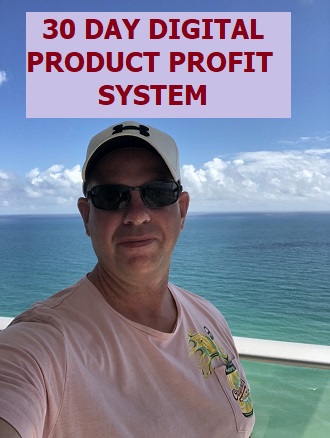 To be effective in either direct mail marketing or online marketing you must be able to attract readers to your content and rope them into your web of information, content before there is ever the chance that they will take action resulting in your business earning profit and revenue.
To be effective in either direct mail marketing or online marketing you must be able to attract readers to your content and rope them into your web of information, content before there is ever the chance that they will take action resulting in your business earning profit and revenue.
But…if you improve (even just a little) in your ability to rope people in with your writing – you will have learned a skill that can bring you an endless supply of business, profits and secure your future forever more.
Stop! Before you pay anything to learn copywriting – do this first…
How did these masters of copywriting learn their craft:
- Joe Sugarman
- David Ogilvy
- Gary Halbert
- John Carleton
- Michel Fortin
- Just to name a few
Did they go to the elite copywriting schools on the East or West coast? Hmmmm…not exactly.
These people learned primarily three ways…
1. By studying great copywriting from the past
2. By studying great copywriters that came before them
3. By dedicating themselves to their craft, trying and measuring to figure out what works
Do you see where I’m going with this?
I’m not saying that you will end up to be an elite copywriter – and even if you do, it will take years of following the 3 steps above.
But as someone who is starting, or someone who has been at it for a few years with limited success – you have amazing upside potential by learning just a few techniques.
Those of you who have produced successful information products using the techniques outlined at InfoMarketer’sZone are now ready to turn your information into hot selling online businesses – let’s learn how here.
Here’s an exercise to use for the next week that will improve your copywriting skills more than any training program will do given the same use of your time – and it costs one hell of a lot less!
For the next week, whenever you read an internet portal or news site such as Yahoo, Google or any industry specific portal site OR whenever you read your morning newspaper or monthly magazine, follow these steps…
1. Write down the titles of the articles, stories or headlines that caught your attention most. In one week you should be able to easily identify 10 or so stories.
2. When you write down the story – also ask yourself (and answer) these questions:
- What was it about the headline that caught my attention – was it one specific word, an image, the subject?
- What did I think of when I came across the story – what were you feeling? Did you feel curious? Was it funny or entertaining? Did you see personal synergy – did you think this might help you achieve something? Was it in line with a wish, dream or desire you had? If so – what was it about the headline, story or ad that created this emotional response within you?
- Did you read the entire story? If yes, what aspect of the story kept your attention all the way through? Can you pick something out of each paragraph that tweaked your interest enough to read on? If you did NOT read the entire story, why not? Where did it lose you and what emotion did you feel when you hit that point in the story/ For example, sometimes you think you will discover the answer to a question the title asks, but you feel disappointed, let-down or even angry when you find the answer was not provided – you need to know where in the story,ad or piece that this happened.
- Then, if you still feel positively about the headline, story or ad – rank it from 1 to 10 and bookmark or save the story if you can.
3. At the end of the week, review all of your entries and re-rank them based on what you know of the entire group.
4. Do the same thing for another week.
5. At the end of the two weeks, go back to your top 5 for each week and read over the stories, ads, headlines again – study them and go over your observations about them. By doing this, you are internalizing the techniques used in these writings – and over time – will subconsciously incorporate those into your writing.
Finally, the more you are able to observe using this technique the more you will get out of this exercise.
By using this copywriting technique you will learn the basics (and even some advanced) techniques – you will be much more prepared to incorporate effective copywriting into your offline or online business and can then make better use of more advanced training techniques to refine or add to your knowledge.
Here’s one to get you started…
On Yahoo portal this morning my eyes immediately went to an article titled
"Mysterious Illness strikes after meteorite hits Peruvian village"
What attracted me to the article? Curiosity – especially the word "mysterious" and "meteorite hits". With a common interest in things outer-space, the story played on two common emotions – a fear of illness that has been instilled in us all since SARS, and global illness awareness along with the very uncommon event of a meteorite landing.
Why did I click on the headline? I wanted to know if there is anything I should be worried about AND this was a very unique occurrence that seemed very different than most other news
Did I read the entire story? Absolutely – every paragraph drew me in more to the story. The first paragraph again reiterates the main theme of "mysterious illness" making you want to know more. The second paragraph uses a combination of facts (exact location of the meteorite) and image-based language to keep my attention. Third paragraph hits me with what I really wanted to know – what were the symptoms of the illness, the next two paragraphs hold interest by highlighting the response and finally the last paragraph leaves you wanting more by playing on the "mysterious" angle when it mentions "bubbling water"
Your job as an offline or online marketer is to generate interest, attention and action with your copywriting. Achieving these goals must be applied to all content development including…
- Your article or blog postings
- Social networking entries
- Ads
- Your Sales letter and websites
- Your product name, titles and descriptions
- Press releases and publicity
- Sales and marketing collateral
- ANY CONTENT YOU PRODUCE FOR THE WEB!
So, as you can see, to be successful online you must get better at copywriting – so everyone reading this who is planning to start or currently running their online business will benefit from following this exercise.
Even better, why not share the results of your first analysis with us by including it in a comment to this post – that way we can build a good mix of analysis helping you to learn even faster by looking at the results from others.
We’ll consider highlighting the top entries in future blog posts giving you some nice publicity and backlinks to your own website.
Jeff


